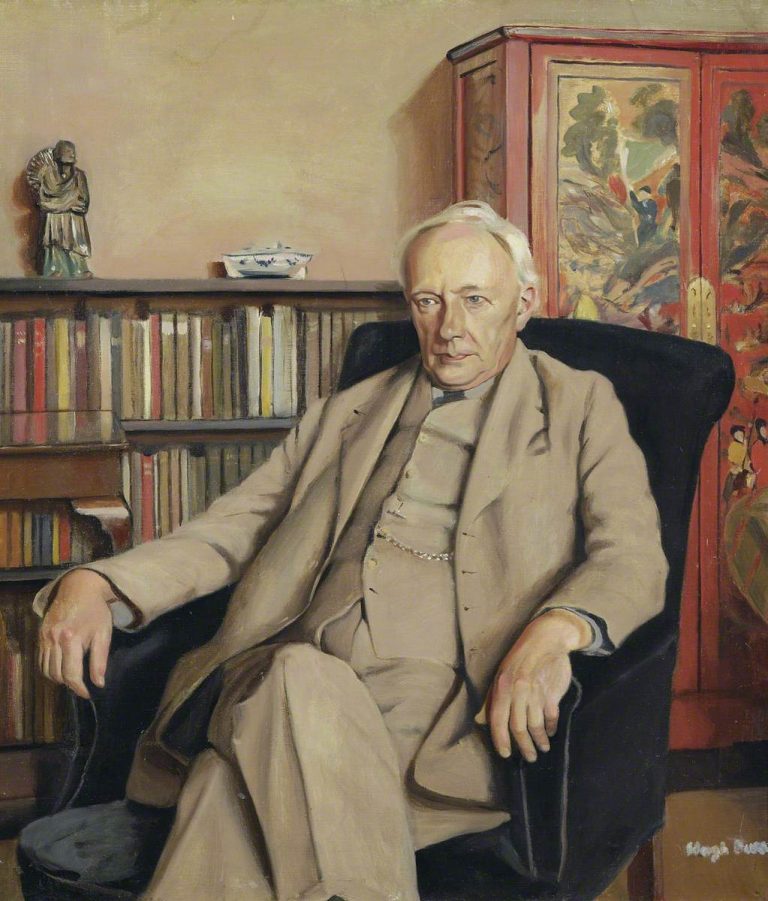Date of Birth: November 4, 1873
Zodiac Sign: Scorpio
Date of Death: October 24, 1958
Biography
George Edward Moore, commonly known as G.E. Moore, was a preeminent British philosopher, born on November 4, 1873, in London, England. He was a major figure in the analytic tradition of philosophy and significantly influenced 20th-century philosophical thought. Moore is best known for his works in ethics, epistemology, and metaphysics, and is particularly associated with the defense of common sense and the refutation of skepticism. Moore was educated at Dulwich College and then at Trinity College, Cambridge, where he later became a fellow and a lecturer. His early philosophical work was influenced by idealism, but he soon became a staunch critic of the movement, advocating instead for realism. His most famous works include “Principia Ethica” (1903), where he introduces the “naturalistic fallacy” and argues for the indefinability of “good,” and “A Defense of Common Sense” (1925), which argues against radical skepticism. Moore’s clarity of thought and rigorous analytical style were highly influential, especially on his contemporaries and subsequent generations of philosophers, including Bertrand Russell and Ludwig Wittgenstein. He was also a key figure in the Bloomsbury Group, a collective of intellectuals and artists. G.E. Moore passed away on October 24, 1958, in Cambridge, England, leaving behind a legacy that continues to shape contemporary philosophical discourse.
5 Interesting Facts about George Edward Moore
1. G.E. Moore was a close friend and philosophical ally of Bertrand Russell, another key figure in the analytic tradition.
2. He served as the editor of the influential philosophical journal “Mind” from 1921 to 1947.
3. Moore’s concept of the “naturalistic fallacy” has been a cornerstone in the study of ethics and meta-ethics.
4. He was a member of the Bloomsbury Group, which included notable figures such as Virginia Woolf and John Maynard Keynes.
5. Moore’s “open question argument” has been instrumental in discussions about the nature of ethical properties.
5 Most Interesting Quotes from George Edward Moore
1. “The most important fundamental fact about ethics is that moral judgments are of a unique kind.”
2. “A great part of courage is the courage of having done the thing before.”
3. “It seems to me that ethics is a study of what is good and what is bad, and that a large part of it consists in trying to find out what things are good and what are bad.”
4. “The object of philosophy is to understand the actual world as it is.”
5. “Good is good, and that is the end of the matter.”
Highest Net Worth Achieved
G.E. Moore did not accumulate significant wealth through his philosophical work. His highest net worth is not well-documented, as his contributions were primarily academic rather than financial.
Children
George Edward Moore had two sons, Nicholas Moore, who became a poet, and Timothy Moore.
Relevant Links
1. [G.E. Moore – Stanford Encyclopedia of Philosophy](https://plato.stanford.edu/entries/moore/
2. [G.E. Moore – Internet Encyclopedia of Philosophy](https://www.iep.utm.edu/moore/
3. [Principia Ethica (full text](https://fair-use.org/g-e-moore/principia-ethica/
4. [A Defense of Common Sense (full text](https://www.ditext.com/moore/common-sense.html
5. [G.E. Moore’s Influence on Analytical Philosophy](https://www.britannica.com/biography/G-E-Moore

